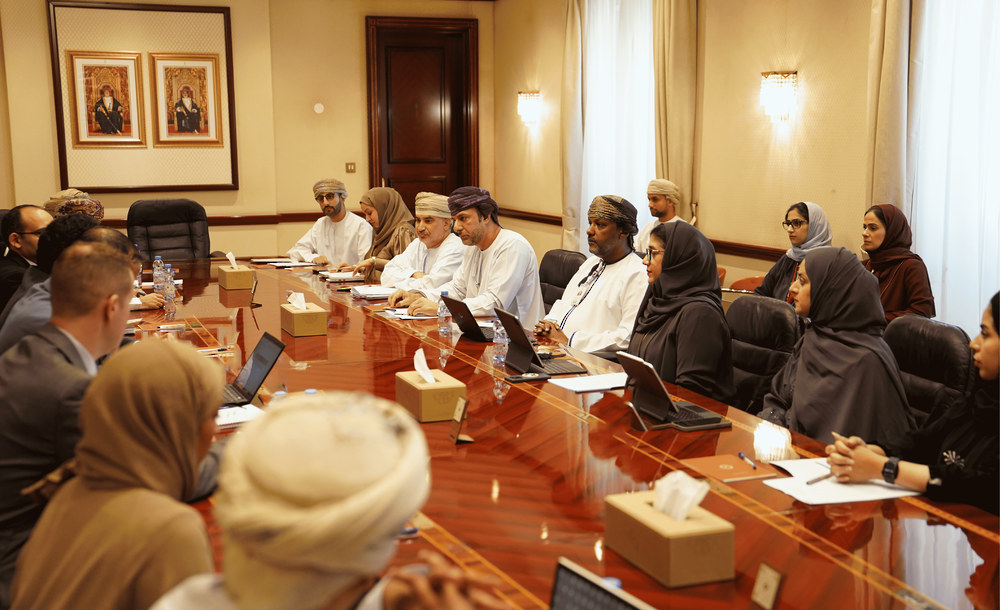
The experts praised Oman’s strong financial and economic results, the banking industry’s tenacity, the country’s improved foreign account, and the government’s resolve to implement structural changes.
Muscat: Experts of the International Monetary Fund (IMF) concluded their visit to the Sultanate of Oman, as part of the annual consultations under Article IV of the IMF’s agreement.
The experts commended Oman’s positive economic and financial performance, the resilience of its banking sector, improvements in its external account, and the government’s commitment to pursuing structural reforms.
The experts highlighted the continued positive growth of Oman’s economy. Real GDP grew by 1.9% in the first half of 2024, compared to 1.2% in 2023. This growth was attributed to sustained improvements in non-oil activities, which grew by 1.8% in 2023 and accelerated to 3.8% in the first half of 2024, driven by the robust performance of the industrial, manufacturing, and service sectors.
The hydrocarbon activities contracted due to voluntary production cuts under the OPEC+agreement. Inflation remained contained, with rates declining to 0.6% during January–September 2024 compared to 0.9% in 2023, reflecting Oman’s success in managing price levels.
The IMF mission noted that the surpluses recorded in Oman’s fiscal and current account balances remain strong. Furthermore, experts’ forecast also indicate a continued decline in the level of public debt, which is expected to enhance the credibility of the policies and programs adopted by the government of the Sultanate of Oman. Undoubtedly, this has contributed to the recent upgrade of Sultanate of Oman’s sovereign credit rating to investment grade.
The economic outlook remains favorable, with growth expected to remain at 1.2% in 2024 due to extended OPEC+ oil production cuts. Economic growth is projected to improve in early 2025, supported by increased oil production and continued growth in both oil and non-oil activities. Despite uncertainties arising from volatile oil prices, potential global economic slowdowns, and geopolitical tensions according to IMF reports;Experts’ forecasts expect Sultanate of Oman to maintain fiscal and current account surpluses over the medium term.
The mission praised the government’s efforts to enhance fiscal management, maintain fiscal discipline, and strengthen social safety nets. The non-oil primary deficit is expected to remain stable in 2024 as a percentage of non-oil GDP, compared to 29% in 2023. The experts emphasized the importance of continuing fiscal reforms to ensure financial sustainability and intergenerational equity.
Efforts to increase non-oil revenues were highlighted as essential for reallocating resources to growth-supporting investments and driving Oman’s economic diversification plans. The experts also recommended enhancing the medium-term institutional framework for public finances, including integrated financial planning, the adoption of fiscal rules, and a comprehensive framework for sovereign asset and liability management.
The experts reaffirmed that the fixed exchange rate regime maintained by the Central Bank of Oman is a credible and suitable monetary policy anchor. They commended the progress on the Central Bank’s “Monetary Policy Efficiency Enhancement Project,” which aims to strengthen monetary policy tools. Moreover, the Sultanate of Oman’s banking sector remains resilient, with bank profitability recovering to pre-pandemic levels and high asset quality maintained. The experts advised further developing financial markets, expanding the institutional investor base, and leveraging digital transformation to enhance financing opportunities and support economic diversification.
The IMF mission commended the Sultanate of Oman’s ongoing structural reforms under Oman Vision 2040, including enhancing the Social Protection system, labor market reforms, initiatives to improve the market environment, attract foreigninvestments, and empower SMEs. Moreover, efforts to reform state-owned enterprises, enhance renewable energy production to lower electricity generation costs, and support the green hydrogen economy were also recognized. The government’s progress in advancing its digital transformation agenda was further commended.
For all the latest news from Oman and GCC, follow us on Instagram, like us on Facebook & subscribe to our YouTube Channel, which is updated daily.





